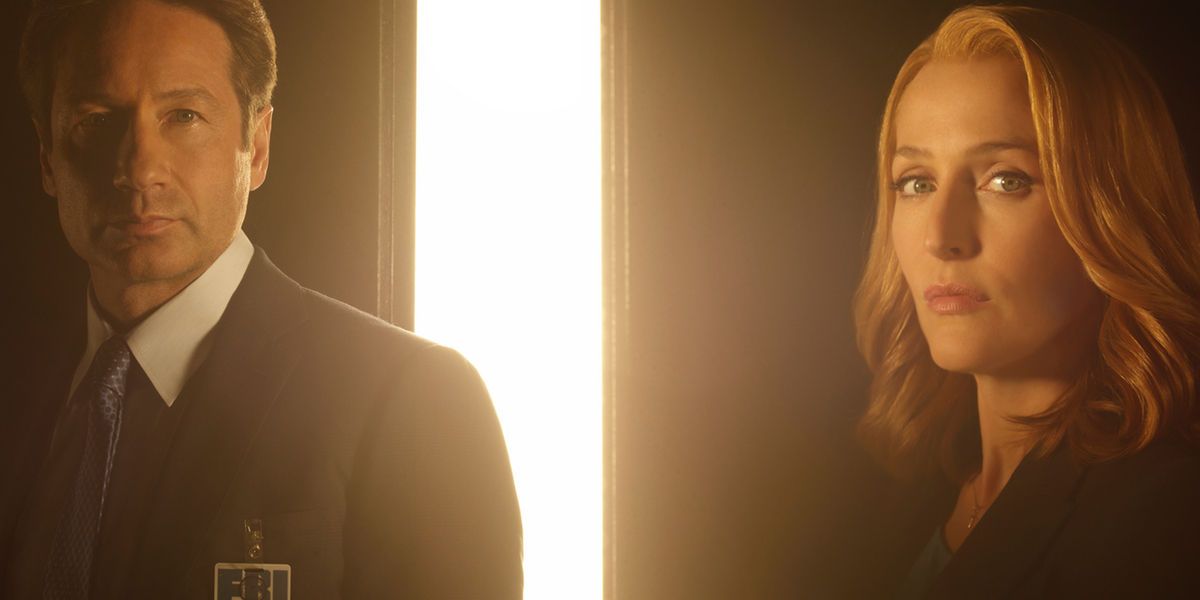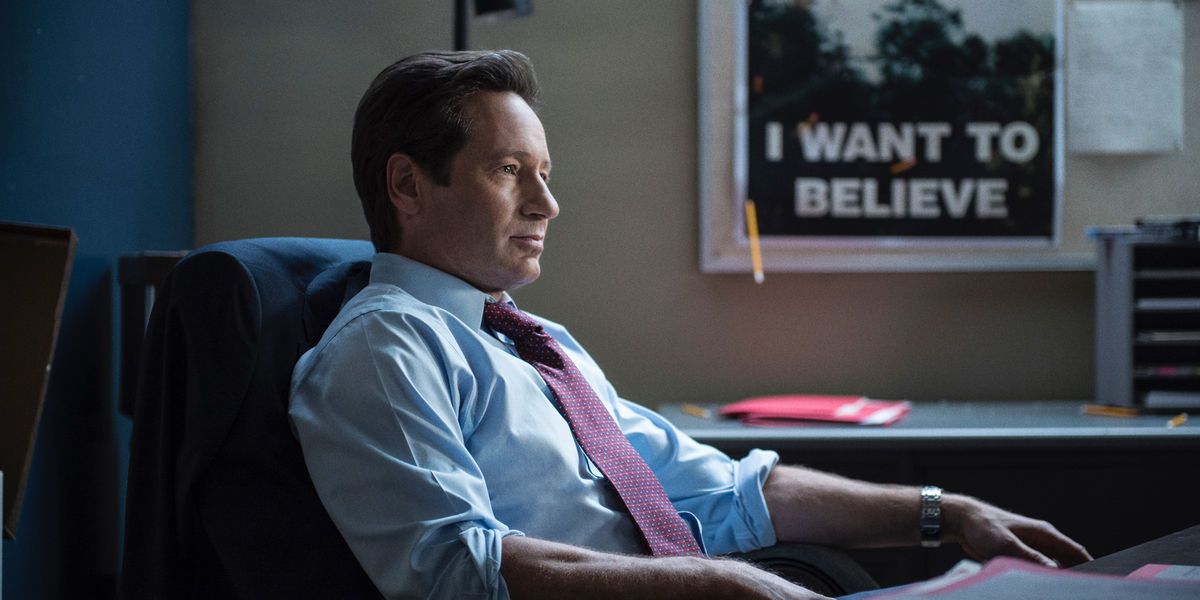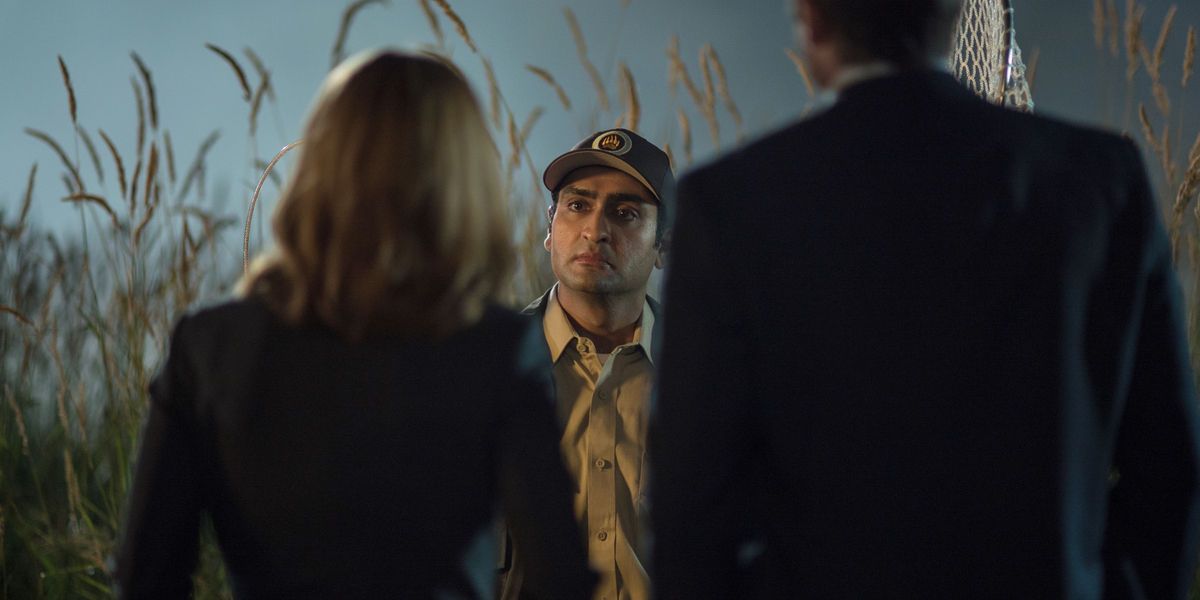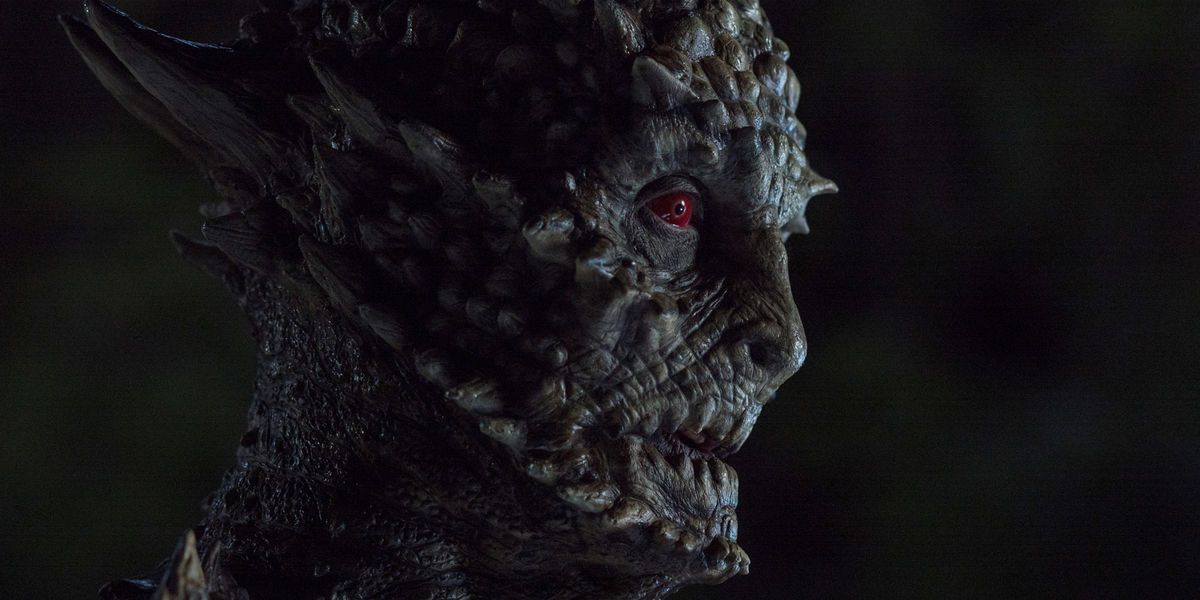Ask any fan of The X-Files what his or her favorite episode is and you will likely receive a specific answer. There is no beating around the bush, saying "the one where…" offering halfhearted attempts to describe the general scenario in which agents Mulder and Scully find themselves. Instead, it's usually very straightforward. You might hear 'Jose Chung's From Outer Space' or 'Home.' There's a good chance 'Clyde Bruckman's Final Repose' or 'Musings of a Cigarette Smoking Man' will be brought up as well. There are over 200 episodes in the series' catalogue – most are good, some not so good, and some of them are why the show enjoys the sort of legacy that can see it return nearly 15 years after its then-final episode to stellar ratings. The point is: The X-Files is the sort of show that made fans want to learn, remember, and reference the titles of specific episodes – the way you would remember, say, your favorite song titles on a great album instead of simply referencing the track number.
Many of the likeliest episodes to make anyone's "favorite" list, let alone rise to the top, are probably not the season-beginning or ending chapters that took a deep dive into the series' somewhat convoluted mythology. Instead, they were the one-off hours, the "fillers," the episodes where cases began, were investigated, and resolved – or not resolved, as was so often the design of the show. These were the hours where The X-Files could breathe and really be itself; where it wasn't immediately shackled by its own mythology, but rather the idea of the show's specific mythology was made implicit in the idea that Mulder and Scully were out there in search of the "Truth."
Even though the series reached an endpoint back in 2002 – a narrative destination largely made moot by the existence of a monster-of-the-week second theatrical film and the revival of the series on FOX – The X-Files was (and technically still is) one of those network television programs designed to go on forever. While it had an overarching storyline, a larger narrative that could be resolved in the interest of ending the series and (tentatively) providing the audience with a satisfying conclusion, it was not conceived with the specific goal of telling a complete, complex tale from beginning to end. It was conceived to do the very thing it did so well: tell tiny tales in hour-long increments and make them satisfying enough that audiences would tune in for nine seasons – or a tenth, as the is case now.
As proof of this, the series - shepherded by creator Chris Carter and a gaggle of future showrunners, like Alex Ganza, Howard Gordon, Frank Spotniz, and perhaps most notably, Breaking Bad creator Vince Gilligan - generally only spent a few hours each season directly addressing the aforementioned central storyline, much less moving it forward. With 20 some-odd episodes each season, there was significant time left for Mulder and Scully to chase down paranormal leads, investigate sightings of strange creatures, and generally get up close and personal with the creepy crawlies of the audience's collective nightmares.
It was in these weekly investigations that The X-Files truly came to life, and how, during its now-10 seasons on television, it demonstrated its mastery of the episodic format like few other shows in the history of the medium have. The X-Files was something of an anomaly; it had at its core a storyline ripe for serialization, and yet it worked best when serialization was the last thing on its otherwise paranoid mind. The more one-off the episode was, the more it blended (or maybe blew up) the requirements of a typical "cop show" mixed with horror and sci-fi elements the better.
Understanding the series is at its best when little gray invaders and the old white men who consigned humankind's fate to them were remanded to the background is key to understanding why 'My Struggle,' the first episode of the revival, was unsuccessful. The specific story of The X-Files - the extraterrestrial black oil, the pending invasion from the stars, and the clandestine group of individuals pulling the strings to make the best of an otherwise bad situation - is not what brought Mulder out of his apparent hermit-like existence; it's not what convinced Dr. Dana Scully to put aside her days being covered in arterial spray to once again pal around with the conspiracy-minded guy she once had a kid with. And that's certainly not what brought audiences back in droves when the series premiered once again.
As much as the current television landscape of highly serialized, bingeable narratives might convince you otherwise, the appeal of an X-Files revival was not tied to the promise of one or two hours wherein nine seasons worth of storytelling threads would be arranged (or rearranged) in a way that was not only comprehensible, but also spoke to the specific concerns of 2016. Rather, the appeal of an X-Files revival was in the promise of more X-Files.
Next: Where the Season 10 Premiere Went Wrong
In a sense, the problem with 'My Struggle' was its transparent need to verbalize its fan service and make the implicit "the truth is out there" and "I want to believe"-ness of each and every episode in the series into an explicit conversation, as though there needed to be a refresher course on what this series was. As such, the first hour was the equivalent of The X-Files being described to someone who had no idea what the show was or what it was about. That kind of thinking is understandable in the sense that, to a certain extent, the show needed to be aware it hadn't been on the air for nearly a decade and a half, but it was also demonstrative of the show's own lack of awareness of its lasting impact. Like the flag embedded in the surface of the moon by the astronauts of Apollo 11, the flag The X-Files planted on the landscape of popular culture was still standing – thanks in large part to the series being available in its entirety on Netflix.
Even for diehard X-Files fans the premiere was a rough hour of television, one akin to watching an athlete emerge from retirement and miss a jump shot he would otherwise have sunk with his eyes closed years prior. But thanks in large part to the show's deep bench of returning writer-directors like James Wong and, especially, Darin Morgan, the series was quickly able to brush off the cumbersomeness of 'My Struggle' and correct course.
'Founder's Mutation' may not have elicited the same exultant shouts of joy that 'Mulder & Scully Meet the Were-Monster' brought about, but there was an audible sigh of collective relief heard after it aired. Written and directed by James Wong, the episode was self-aware in how it addressed the issue of time passing without forcing that same awareness to become the text of the story. The episode was serviceable to the series and to the fans in the way the deliberate servicing of both the series and the fans in 'My Struggle' was not. It was simple and casual; an hour of television that carried itself as just another typical episode of The X-Files – an act of restraint that says a lot. The result, then, became a solid-but-not-phenomenal installment that nonetheless demonstrated the role muscle memory would play in this six-episode revival and the importance of the series falling back on what it already knew it did well.
Any loyal viewer knows that one thing the series does well is enlist Darin Morgan to deconstruct its own model and have fun with its conventions, while still delivering a memorable X-Files experience. That happened again with 'Mulder & Scully Meet the Were-Monster,' a light, funny hour that made the most of guest stars Rhys Darby and Kumail Nanjiani, was loaded with Easter eggs, and featured the revival's first engaging performance from what had, up to that point, been an unusually reserved David Duchovny. The hour breathed new life into the series' return, but it also confirmed once again just how comfortable what is ostensibly a horror/procedural cop-show mash-up is wandering up and down an incredibly broad tonal spectrum.
Regardless of how the final three episodes turn out – two will be monster-of-the-week installments, while the finale will be a continuation of the (new) mythology building premiere, titled 'My Struggle II' – The X-Files has demonstrated through this revival how its mastery of the episodic format and the fluidity of the series' tone, its ability to do horror, comedy, thriller, straight police procedural, or any combination therein, is really the show's most impressive asset – and its saving grace. If an episode doesn't work out one week, the writers aren't stuck trying to undo the damage; they simply move on and try a different approach. Part of that is the forgiving nature of the series' episodic format. But a larger part is The X-Files ability to use that format to its distinct advantage and to deliver a wide variety of stories all anchored in the same paranoid lusting for an elusive Truth believed to be out there somewhere.
-
The X-Files season 10 continues with 'Home Again' on Monday, February 8 @8pm on FOX. Check out a preview below:
Photos: Ed Araquel/FOX




